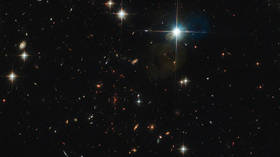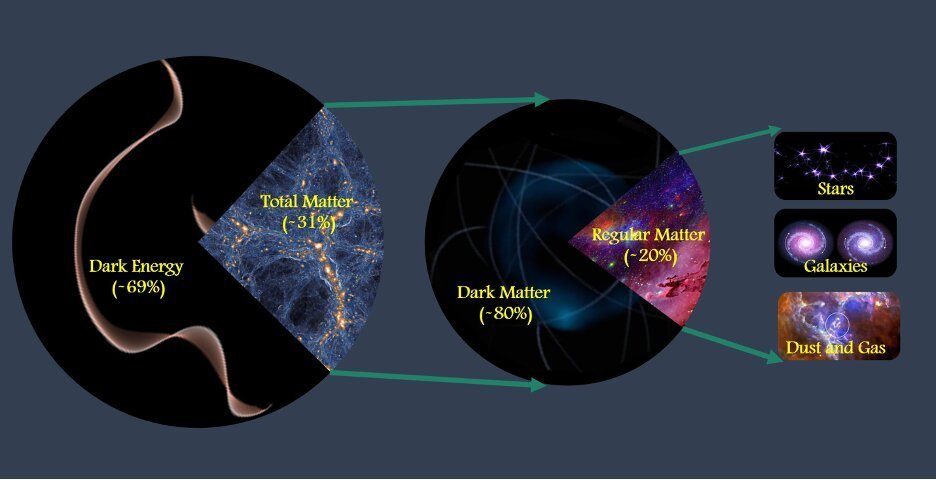Scientists gain DARK ENERGY insight while calculating how much matter there is in the entire universe

A team of experts have achieved a major cosmology goal by precisely measuring the total amount of matter in the entire universe. The research reveals that more than two thirds of everything is made up of ‘dark energy.’
We’ve long known that the universe is really, really big. More recent research has indicated that it was made from three components: matter, dark matter and dark energy. However, unravelling exactly how much of each of these components there is has been extremely difficult to figure out.
But a team of cosmologists from the University of California, Riverside, believe they have finally done it. According to their calculations, just less than one third (31 percent) of the universe is made up of both matter and dark matter. Absolutely everything else is dark energy.

The team made their calculations by examining galaxy clusters and employing a method called galweight to come to their findings. Galweight uses the orbits of the galaxies within the clusters to figure out which one belongs to which cluster. This provided 98-percent accuracy in determining the mass of each galaxy cluster.
Of the matter and dark-matter mix, the vast majority (80 percent) is made of dark matter, a substance that has bewildered scientists for decades and has only been detected through its gravitational interactions with other matter.
“To put that amount of matter in context, if all the matter in the universe were spread out evenly across space, it would correspond to an average mass density equal to only about six hydrogen atoms per cubic meter,” explained first author Mohamed Abdullah.
“However, since we know 80 percent of matter is actually dark matter, in reality, most of this matter consists not of hydrogen atoms but rather of a type of matter which cosmologists don't yet understand,” Abdullah added.
The findings lay bare the stark reality that the vast majority of the universe is made from matter we can't yet explain. In order to truly understand the findings experts need to dig deeper into the mysterious dark energy force that's driving the universe's expansion.
Also on rt.com Monstrous black holes, the size of 100 billion suns, could help shed light on dark matter mysteryLike this story? Share it with a friend!












